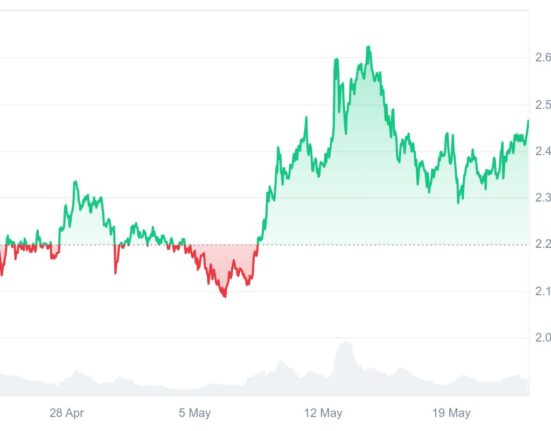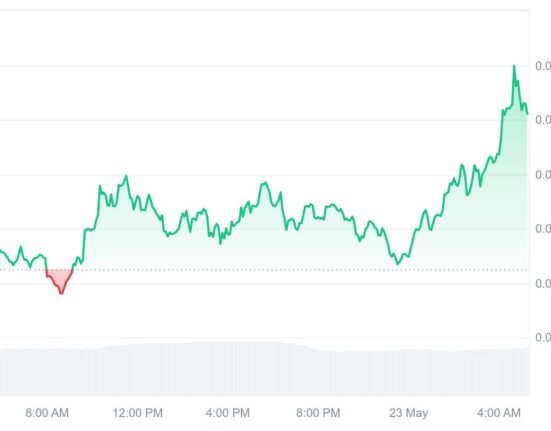Disclosure: The views and opinions expressed here belong solely to the author and do not represent the views and opinions of crypto.news’ editorial.
Crypto in the United States is entering a new era as policymakers across the federal and state levels consider strategic Bitcoin (BTC) reserves and a legislative framework that brings clarity to the industry after years of uncertainty.
In the last weeks alone, President Trump announced the establishment of a national Bitcoin reserve under executive action, while U.S. Senator Cynthia Lummis introduced legislation proposing the creation of a U.S. strategic Bitcoin reserve through Congress. If passed, it would reinforce Bitcoin’s significance in financial markets and create long-term confidence among miners and investors.
For Bitcoin mining, this shift represents a crucial opportunity because clear and consistent regulations can support innovation, attract investment in the sector, and promote sustainable growth.
By creating a framework that balances accountability with opportunity, the US can solidify its position as a global leader and ensure that both the Bitcoin mining and energy sectors thrive. During this regulatory renaissance, Bitcoin has remained central to the discussion because it’s the foundation of the crypto ecosystem. But as the only major asset that utilizes proof-of-work, Bitcoin’s mining infrastructure is what keeps the whole industry grounded. Supporting miners with regulatory clarity is essential for the long-term viability of the space.
Historically, miners have operated under an unclear mix of state and federal regulations, but Washington is now taking a more deliberate approach and pivoting toward more structured oversight and collaboration.
A bill modeled around the Financial Innovation and Technology for the 21st Century Act (FIT21) is already in the works, aiming to end regulatory uncertainty and clearly define the roles of the SEC and CFTC. By replacing reactive regulation with a structured framework, FIT21 (or a future, updated version) has the potential to provide much-needed stability and will help the industry grow with confidence.
Bills like the Lummis-Gillibrand Payment Stablecoin Act and Senator Hagerty’s GENIUS Act represent an important step toward integrating stablecoins into the financial system. This bill could increase liquidity in crypto markets, encourage institutional investment, and reinforce Bitcoin’s role as the reserve asset of the digital economy.
However, it’s crucial that lawmakers differentiate Bitcoin from other digital assets—many of which lack its resilience and long-term viability. Thoughtful regulation should prioritize the foundational importance of Bitcoin and ensure that mining operations are given the clarity and incentives needed to continue strengthening the network. Similar to past emerging industries like ridesharing, states are leading the charge by example.
While federal policies are still being developed, many individual states have already embraced Bitcoin mining as a driver of energy innovation and economic development. Fifteen US states, including Texas, Alabama, Arizona, and Florida, have introduced legislative proposals to create Bitcoin strategic reserves, recognizing its long-term potential as a financial asset.
Not all of them will pass, but the activity is encouraging. In Arizona and Utah, legislation is already moving through approval channels, potentially setting a precedent for Bitcoin’s role in state financial strategies. Recognizing Bitcoin as a legitimate reserve asset alongside gold and other state-held reserves would be a significant moment for institutional adoption.
Public-private partnerships are also playing a crucial role at the state level. In Texas, Bitcoin miners are working with the Electric Reliability Council of Texas (ERCOT) to stabilize the power grid, adjusting their energy consumption based on supply and demand. Collaborations like this show how mining can be an asset to the energy sector and contribute to energy resilience nationwide.
In Arkansas, local governments are prohibited from treating Bitcoin miners differently from traditional data centers. Montana passed a similar bill to protect miners from government interference and explicitly said that the industry “provides positive economic value” to local communities. These efforts reflect a growing recognition of Bitcoin mining’s role in economic growth, encouraging further investment and long-term development.
The economic benefits of Bitcoin mining are tangible in communities across the country. Thanks to mining operations, rural towns that have struggled with job creation are experiencing new investment and infrastructure development. With the right regulatory approach, this economic revitalization can continue, ensuring that mining remains a net positive for local communities while maintaining a responsible approach to energy use.
The next few years will define the future of Bitcoin in the US. With a strong energy infrastructure, increasing regulatory clarity, and a commitment to sustainable growth, America has a generational opportunity to lead. Lawmakers now have the opportunity to craft policies that foster innovation rather than stifle it.
By prioritizing Bitcoin’s foundational role and ensuring mining flourishes, the US will secure its place at the forefront of the global crypto economy.








